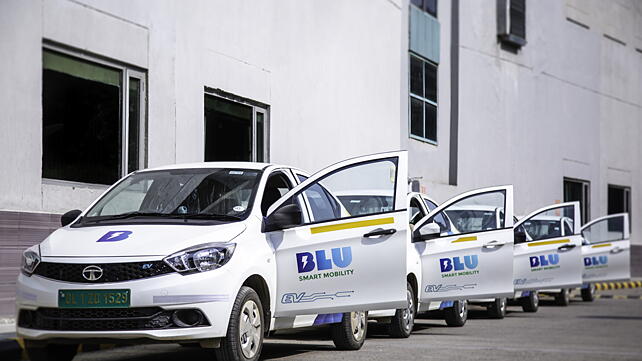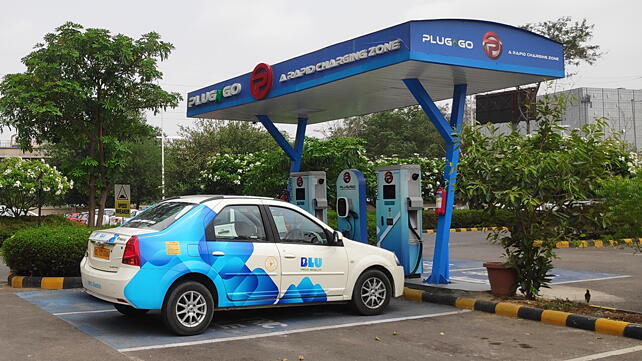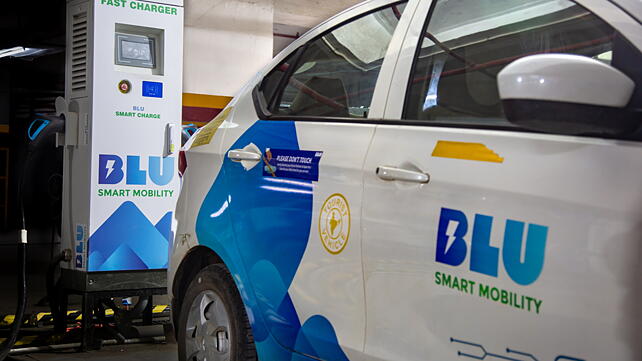
BluSmart Mobility, the Gurugram-based all-electric ride hailing service, has drawn up aggressive plan to scale up its operations over the next four years. From the existing fleet size of 402 EVs operating in Delhi NCR, the start-up plans to ramp it up to 700 units in the coming quarter, and then to 2,000-2,500 over the next one year.
In an interaction with Mobility Outlook, Anmol Singh Jaggi, Co-Founder, BluSmart Mobility shared the company’s long term plan to expand its fleet size to over a lakh units by 2025, with operation spread across the country. “This will save the country a lot of money not just on crude oil imports, but also on health infrastructure, considering we would be contributing to a cleaner environment,” Jaggi said.
How is it adding to its capabilities?
In 2020, BluSmart raised a total of $7.8 million funding from multiple investors, including Inflection Point Ventures, Venture Catalysts, Survam Partners, Mumbai Angels, Chhatisgarh Investments, JITO Angels, Lets Venture Fund and Kaplavriksh Fund. In total, the company has raised a total of $10.8 million till now.
Alongside investing its funds on increasing the fleet size, BluSmart also plans to invest on the development of EV infrastructure around India. This will not only benefit them in expanding their business but also help prospective customers overcome the major problem of owning an EV in India, which is lack of charging infrastructure.

BluSmart’s charging stations are spread across Delhi NCR. The company has partnered with different companies to make the zero-emission mission successful in the country by setting up charging stations at different locations. It is in the process of adding another 130 fast-charging stations within the next month or two, and building its network to about 20,000 fast charging stations within the next four years.
Jaggi said, “We are not building charging infrastructure just for ourselves. We are building it for anybody who wants to come and use them. I think EV charging infrastructure is going to be the future. How you see a lot of petrol pumps today, you will see a lot of EV charging infrastructure and a lot of it will be built by BluSmart. We look forward to building our EV charging business network like Indian Oil built it’s thousands of petrol pumps.”
Electrification is the future of mobility – this is the vision with which BluSmart began its services in India in 2019. Its operations are currently limited to Delhi-NCR with about 3,000 trips per day, as of March 2021.
Over the next four years, the company intends to expand its operations across six metro cities in India, which constitute about 70-80% of all four-wheeled ride-hailing business. In addition, BluSmart also plans to expand its business to Southeast Asia and Africa. The company is getting a lot of interest from prospective partners in those markets, and are in active conversations with some of them. “But we won’t go there immediately. Maybe in the medium-term horizon,” Jaggi said.

How did it deal with COVID-19?
As a start-up, BluSmart utilised the first wave of the pandemic quite systematically. In March 2020, hit by the pandemic, the company had to shut down its operations completely. At that point of time, BluSmart focussed on three critical aspects:
- One, improve its tech stack, thus preparing it up for scale and agility that helps to launch new features and products in much less time;
- Two, innovate on its driver lease model that ensures complete flexibility for the driver partners without asset ownership burden, and at the same time helps to optimise the business operations; and
- Three, focus on people’s welfare and skill development, which has made its teams better at the tasks at hand and helped prevent churn both at employee and driver partner level.
“We believe that responsibility for the environment, responsibility for our consumers and responsibility for our driver partners is the vision of the company and in no way has the pandemic or COVID wave one or COVID wave two impacted our vision in any way we still think every day in the morning, that these are the three bigger responsible mobility player is what we want to do,” Jaggi concluded.